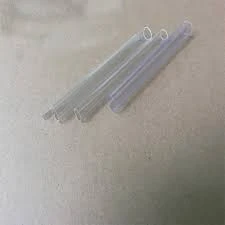Nov . 23, 2024 04:30 Back to list
hdpe tube
Understanding HDPE Tubes A Comprehensive Overview
High-Density Polyethylene (HDPE) is a versatile plastic widely used in various applications, particularly in the production of tubes and pipes. Its popularity stems from several inherent properties that make it a top choice for industries ranging from construction to agriculture. In this article, we delve into the characteristics, applications, advantages, and environmental considerations related to HDPE tubes.
What is HDPE?
High-Density Polyethylene (HDPE) is a polymer made from petroleum. It boasts a high strength-to-density ratio and is recognized for its durability and resistance to impact and chemicals. This rigid and lightweight material can withstand high temperatures and is relatively resistant to environmental stress, making it an excellent choice for piping systems.
Characteristics of HDPE Tubes
HDPE tubes possess several distinguishing characteristics
1. High Strength-to-Weight Ratio HDPE tubes are known for their strength, which allows them to bear heavy loads without bending or breaking while remaining lightweight for easy handling and installation.
2. Chemical Resistance They resist a wide range of chemicals, including acids, bases, and solvents, which makes them ideal for transporting various substances safely.
3. Low Thermal Conductivity HDPE has low thermal conductivity, which minimizes heat loss and makes it suitable for insulation applications.
4. Flexibility While HDPE is strong and rigid, it also offers some flexibility, enabling it to bend without breaking, which is particularly useful in applications where space constraints require curved piping.
5. Long Lifespan HDPE tubes can last for decades without significant degradation, making them a cost-effective option for long-term projects.
Applications of HDPE Tubes
The flexibility and durable nature of HDPE tubes make them suitable for a myriad of applications, including
- Water Supply Systems HDPE tubes are commonly used in municipal water supply and distribution systems due to their ability to resist corrosion and leaks.
hdpe tube

- Wastewater Management Their chemical resistance and durability make them ideal for sewer and drainage systems, ensuring effective wastewater transportation.
- Agriculture In agriculture, HDPE tubes are used for irrigation systems, allowing efficient water distribution while minimizing evaporation loss.
- Construction HDPE pipes are employed in various construction projects, from foundation systems to ventilation and electrical conduits, due to their strength and resistance to environmental factors.
- Telecommunications The telecommunications industry utilizes HDPE for ducting and protecting wiring, given its durability and flexibility.
Advantages of HDPE Tubes
The advantages of using HDPE tubes are numerous
- Cost-Effective While the initial investment may be higher than traditional materials, the durability and low maintenance costs of HDPE result in significant long-term savings.
- Lightweight Their lightweight nature facilitates easier transportation and installation, reducing labor costs and time.
- Environmentally Friendly HDPE is recyclable and can be repurposed for various applications, minimizing environmental impact.
- Corrosion Resistance Unlike metal pipes, HDPE does not corrode, ensuring a longer lifespan and less environmental contamination.
Environmental Considerations
While HDPE tubes are more environmentally friendly than many alternatives, there are still concerns regarding their production and disposal. The manufacturing process involves fossil fuels, contributing to greenhouse gas emissions. However, it's important to note that once in use, HDPE can be recycled multiple times, which mitigates some environmental impacts. Efforts are being made to enhance the sustainability of HDPE, including using bio-based materials and developing more efficient recycling practices.
Conclusion
HDPE tubes represent a blend of strength, flexibility, and resistance that caters to numerous industries and applications. Their myriad benefits, coupled with their potential for recycling, make them a pivotal element in modern infrastructure. As industries continue to seek sustainable solutions, HDPE will likely remain at the forefront of innovation, offering reliable and eco-friendly options for various needs. In an ever-evolving landscape, understanding the role of HDPE tubes is essential for making informed decisions in construction, agriculture, and beyond.
-
Premium PVC Soft Sheets: Clear, Flexible & Durable
NewsAug.12,2025
-
Premium PVC Round Rods: Durable, Chemical Resistant, Easy to Machine
NewsAug.11,2025
-
PP U-channel: Chemical-Resistant, Lightweight & Durable
NewsAug.10,2025
-
Transparent PVC Pipe: Clear Flexible Tubing for Fluids
NewsAug.09,2025
-
Durable PP Rigid Sheet: Versatile & High-Quality Plastic Panels
NewsAug.08,2025
-
Premium Glossy PP Rigid Sheet – Durable & Versatile
NewsAug.07,2025

